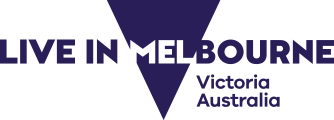You’re not alone when you migrate to Melbourne. The Victorian Government supports skilled migrants in many ways.
We welcome skilled migrants from around the world and work to make sure your move to Melbourne is as easy as possible – from finding a job to learning English.
A place of growth and opportunity
Melbourne is a place of growth and opportunity for talented professionals from around the world. When you live and work in Melbourne, you get to enjoy a relaxed lifestyle in a temperate climate.
We have friendly, multicultural communities, clean air and water, and leafy suburbs with plenty of green open spaces. Locals love our restaurants and fresh produce to suit every palate, and a year-round calendar of sporting and cultural events.
Finding work
Go to our Finding a job in Melbourne section for assistance on how to find work. The Regional Australia Institute maintains a regional jobs guide which provides useful information on jobs in regional Victoria.
Occupation registration and licensing
Some occupations require registration or licensing with a government authority or membership of a professional or industry association.
The Department of Home Affairs website provides information on skills recognition and licensing requirements in Australia and individual states and territories.
Relocation support services and networks
Local government councils
Often local government councils offer guidance and settlement services to support newly arrived migrants. For more information on local government areas, visit our Metropolitan Melbourne pages.
Local settlement services and support organisations
Developing effective professional and social networks can also assist you to quickly fit into your new workplaces and communities. The Newcomers Network offers a number of events and activities for people who have recently settled in Victoria.
Local community groups can also help new employees and their families develop networks and friendships in areas of interest or need.
Adult Migrant English Program
Dependents of skilled migrants whose English is at a low level may be eligible for up to 510 hours of English language classes through the Adult Migrant English Program. Learn more about the Adult Migrant English Program on the Department of Education and Training website.
Help with translating and interpreting
Your dependents may be eligible to access translating and interpreting services if they cannot speak English. Find out more on the Department of Home Affairs' Translating and Interpreting Service (TIS National) or Free Translating Service.
Facilitate English language training
Many newly arrived migrants have excellent English language skills but may still be interested in further training to improve their skills and gain confidence.
Many educational institutions in Victoria offer English language training for all levels. Employers can find a local English language training provider on the Victorian Skills Gateway website.
Further relocation support services
- Migrant Resource Centres - provide community-based settlement support across regions
- AMES Australia - provides English language programs and settlement services
